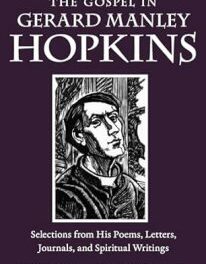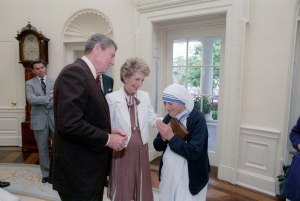We support our Publishers and Content Creators. You can view this story on their website by CLICKING HERE.
The creation of Thanksgiving was no uncontested process but a fight emerging from antebellum crises over slavery and American nationalism.
In November 1859, a Washington, DC alderman from Capitol Hill violently opposed the mayor’s request to declare a Thanksgiving public holiday. By this point, annual celebrations had become traditional and twenty-five governors already proclaimed the holiday for their states. The DC Board of Aldermen, however, hesitated over Thanksgiving’s perceived connection to public disorder, its quasi-religious status, its origins in New England, and its link to abolitionism. Their skepticism came at a time when Southerners searched for alternative historical narratives of the American founding against the rising popularity of the Pilgrims and Plymouth Colony tale. Alderman Charles W. C. Dunnington and six colleagues fought Thanksgiving and, to the shock of the city, thwarted the mayor.
Charles William Colquhoun Dunnington grew up in Dumfries, Virginia, just down river from Washington. A printer by trade, he worked as a young man for veteran Democrat Thomas Ritchie at the Washington Globe, the city’s premier Jacksonian newspaper, and the two became fast friends exchanging political gossip. He also contributed to the Democratic Party’s cause by penning an oft-caustic twice-weekly partisan column for the Alexandria Sentinel under the pseudonym “Quantico.” Dunnington’s Globe connections burnished his reputation among city Democrats and in recognition Presidents Polk, Pierce, and Buchanan all appointed him Chief of the Capitol Police. His politics were pure orthodox Jacksonianism of the Southern persuasion. When the trans-Atlantic telegraph neared completion, for example, the Anglophobe Dunnington notoriously opposed electronic connections between America and the United Kingdom. The entire enterprise was a British plot to overturn the American Revolution. “He cared not how many English, or Irish, or Germans, came to our country, to make it their home,” the National Era ridiculed. “[H]e had a hearty welcome for all; but he desired to keep aloof from foreign Governments.” Political appointments also made Dunnington a wealthy man and he owned homes in both Washington and Virginia as well as slaves at both properties.[1]
Dunnington’s particular obsession was commemorating the founding of Virginia at Jamestown. On New Year’s Eve 1853, he and a group Virginians huddled at the United States Hotel to create the “Jamestown Society of Washington City” which, with leadership from the Capital and Richmond, would annually celebrate Virginia’s contribution to national character, open branches nationally much like Plymouth societies in Northern states, and change the narrative of American history. New Englanders’ efforts to reframe the national story around themselves and the Plymouth Pilgrims gained momentum across the first half of the nineteenth century due to the nation’s greatest orator and a Boston magazine editor: Daniel Webster and Sarah Josepha Hale. Webster’s 1820 Plymouth Oration delivered in the midst of the Missouri crisis (the first of the major antebellum slavery controversies) portrayed the Pilgrims as American anti-slavery republicans protecting and expanding property in land rather than humanity. Their austerity, hard work, and simple republican ideals ensconced in the Mayflower Compact and replicated region-wide in New England town meetings were models for a nation seeking direction after the passing of the Founders. Hale followed Webster’s lead, both in her popular anti-slavery novel Northwood (which lionized the history, theology, and cuisine of Thanksgiving) and in her annual appeal to American presidents to make the day a national holiday, a plea finally answered by a war worn Abraham Lincoln in 1863, earning her the title the Mother of Thanksgiving.[2]
The Virginians sought another narrative of America’s past. Jamestown predated Plymouth by fifteen years and yet the Commonwealth showed total indifference against New England activism. Dunnington’s mentor and Jamestown Society president Thomas Ritchie urged Virginians to wake up and rally behind state history and hail its central role in the nation’s founding:
The first settlement in Virginia constitutes, indeed, one of the most glorious epochs in the history of the whole human race. It was the first in that series of great achievements, which have left their imperishable footprints on the destiny of the world. It was not confined in its consequences to this century or to that – to that country or to this. It embraces all continents and all time.… Like the Rock of Plymouth, it is full of the most thrilling associations. There are the ruins of the steeple of the church; there are the tomb-stones of our forefathers; there is the noble river which first invited the adventurous navigator; there are the sands which were trod by Smith and Pocahontas, and their illustrious contemporaries; and there has grown up the cultivated and the rich neighborhood which remains the seat of ancient hospitality of the State.
George Washington Parke Custis (grandson of Martha Washington and father-in-law of Robert E. Lee) agreed, adding that while he bore no ill will against New England, Virginia must do its duty. “You, Virginians, looking back through the long vista of time, may behold approaching on the broad bosom of the Chesapeake, a few feeble barks. They contain a bold, chivalrous, brave band of men, sent by Providence to plant the standard of civilization in the New World.” The colony and state that gifted America George Washington, Patrick Henry, Thomas Jefferson, and James Madison should stand on equal footing with Plymouth.[3]
Bleeding Kansas soured brotherly feeling toward New England by 1855. Stung by anti-slavery criticism that the South was not free soil, the Jamestown Society took on a distinctly sectional tint. One Society member called Plymouth “the junior settlement” and Custis now defended his section from Northern criticism. Every colony battled for the independence and freedom of America:
Bravely we fought for free soil, free government, and equal laws; but, forsooth, we are told at this late time of day, that the South is not a free soil because it bears on its surface the footprint of the slave. Gentlemen of the free soil idea, permit an old Southron to say unto you, that if yours is a free soil, the blood of the Southron shed upon it in days long past, so improved your soil as to make it free.… The idea that Virginia is not free soil, throws a nettle on the graves of Virginia’s great and renowned Henry, Jefferson, Nelson, Marshall, Madison, and Lees, civil and military apostles of liberty, and benefactors of mankind.
Custis warned that if free soilers continued on “their course of folly and mischief,” Virginia as “Patriarch of the South” would follow her fellow Southern states out of the Union to “preserve and defend her southern institutions, her rights and privileges, against all aggressors.” The Jamestown Society became a vehicle for Southern nationalism.[4]
In October 1959, John Brown and his band of abolitionists raided the federal arsenal at Harpers Ferry, Virginia and although the attack failed, it terrorized Washington citizens. Every slave or free black on the street frightened them, as did New England peddlers (Washingtonians considered them disguised violent abolitionists) passing through Maryland and Virginia to the District. Soldiers guarded the city arsenal and area bridges and police stopped strangers to ask their business. Nothing happened but the city took no chances.
One month later, Washington, DC Mayor James G. Berret asked the Board of Alderman to declare a Thanksgiving holiday and the request was forwarded to the Police Committee for consideration. As Capitol police chief, Alderman Dunnington took charge and one week later stunned the city by recommending no Thanksgiving holiday at all. Thanksgiving was a religious occasion: “We do not conceive it to be any part of our official duty to pass ordinances, adopt resolutions, or make recommendations in regard to religion, or religious duties and Christian observances, except to protect every individual in the free exercise of his or her opinions in this particular. We deem it best to leave this subject where it belongs – to the various Christian churches.” Let ministers and priests celebrate the day, he advised colleagues, since “they hold a higher commission they we do.” In addition, he produced a letter from the DC police chief explaining that Thanksgiving was just an excuse to get drunk. “In this locality, it has had the effect of promoting disorder, intemperance, and immorality.” In fact, with the exception of Christmas, Thanksgiving was the most drunk and disorderly day in the city all year.[5]
Dunnington’s condemnation of Thanksgiving amazed his fellow aldermen, who looked upon the mayor’s request as routine, and their questions raised his ire and revealed his real reason for opposing the holiday. The day “originated in New England,” he fumed (to which a colleague wittily replied, “So did the American Revolution”). His Jamestown Society affiliations and raw feelings over the Harpers Ferry Raid came to the surface:
[T]his day originated with the New England people, who would, doubtless, instead of observing it as they should this year, in giving thanks for the blessings of liberty and prosperity, spend it in their churches in giving utterance to sentiments of discord, and in making incendiary harangues, and contributing Sharp’s rifles, denouncing the people of one section of the country, and other acts calculated to promote, not harmony and nation, but sedition, insurrection, and disorder.
Besides, federal government workers needed money and a day off deprived them of salary. Dunnington’s arguments convinced a majority of aldermen and the Thanksgiving resolution was defeated.[6]
The vote outraged and divided Washington, DC citizens. “No one seems to be satisfied with the grounds upon which the alderman have based their action,” the Washington Star reported and even the Washington Constitution (the Buchanan Administration’s organ edited by the stoutly pro-Southern William “Constitution” Browne) ridiculed the decision. While Thanksgiving originated in New England, a letter to the Star pleaded, “Must politics affect the very air we breathe, and mingle itself with the prayers that ascend to God?” Another letter backed Dunnington, condemning the “anti-Sabbath origin of this New England festival” and calling the day a “Puritanical bane.”[7]
The blowback was substantial enough that aldermen felt compelled to explain their vote at the next meeting, what a Star reported called “confessions of faith.” One anti-Thanksgiving man justified his decision as erecting barriers between church and state and that “such observances should be the voluntary outpourings of the hearts of all men,” not legislated by the city. Another asserted that New England “political religionists” and “religious politicians” put regional festivals like Thanksgiving ahead of Christmas. Next thing you know, he scoffed, we will be told “when and how to pray.” The national capital should not celebrate sectional holidays: “In the region whence this institution sprung, their pulpits are desecrated by political twaddle. Instead of ‘Christ and him crucified,’ they preached the negro manacled. In place of religion, they preached Sharpe’s rifles and Kansas border warfare. Instead of God, they preached Osawatomie Brown.” Sacrilegious and lacking humility, New Englanders used the holiday to agitate and spread their sacrilegious ideas. For this part, Dunnington retracted nothing and noted that every state constitution prohibited a state religion. As the home of Jefferson, Virginia never declared a day of thanksgiving and nonetheless, sounding a Jamestown Society note, excelled in its “defence of civil and religious liberty.” His Board opponents took their pound of flesh. “The speaker professed to be a Democrat of the strictest school,” one alderman jabbed, “but if opposition to Thanksgiving day was henceforth to be an article in the creed, he would repudiate that plank in the platform, and believe it to be an interposition, an injunction, ‘more honored in the breach than in the observance.’” The Board reconsidered and Washington celebrated Thanksgiving as normal. Newspapers reported no drunkenness or disorder and the day passed peacefully.[8]
Dunnington’s remaining years were unhappy ones. He resigned as Capitol police chief after Lincoln’s inauguration and headed South to work at the Richmond Sentinel and serve in Virginia’s Confederate legislature. He also lost both his homes during the war. Federal officials confiscated his Washington residence without compensation (although his heirs received remuneration after his death) and Confederate soldiers stripped his Virginia residence for supplies, taking bricks and tearing structures down to their frames. He served as chief of the Smithsonian police during his last years, dying on the job in August 1887. Obituaries made no mention of his alderman years or the Thanksgiving controversy.[9]
The creation of Thanksgiving was no uncontested process but a fight emerging from antebellum crises over slavery and American nationalism. New Englanders early staked their narrative claim to American history with the words of Webster and Hale, but by the 1850s Virginians like Charles W. C. Dunnington objected and posited a rival Southern claim to national origins based in Jamestown, even to the point of rejecting the Thanksgiving holiday as a New England cultural imposition. Their attempt inevitably blended with the sectional clashes leading to civil war, and after 1865, Plymouth Rock won out.
The Imaginative Conservative applies the principle of appreciation to the discussion of culture and politics—we approach dialogue with magnanimity rather than with mere civility. Will you help us remain a refreshing oasis in the increasingly contentious arena of modern discourse? Please consider donating now.
Notes:
[1] National Era, 2 September 1859.
[2] Washington Sentinel, 2 February 1854. Dunnington was recording secretary.
[3] Washington Sentinel, 23 May 1854.
[4] Washington Sentinel, 4 September 1854.
[5] Washington Star, 8 November 1859; Washington Star, 15 November 1859.
[6] Washington Star, 15 November 1859.
[7] Washington Star, 16 November 1859; Washington Star,18 November 1859.
[8] Washington Star, 22 November 1859.
[9] Washington Critic, 15 August, 1887; Virginia Free Press, 1 September 1887; Alexandria Gazette, 7 May 1889.
The featured image is “Preparing for Christmas (Plucking Turkeys)” (1851) by Francis William Edmonds. This file is made available under the Creative Commons CC0 1.0 Universal Public Domain Dedication, courtesy of Wikimedia Commons.

 Conservative
Conservative  Search
Search Trending
Trending Current News
Current News 






